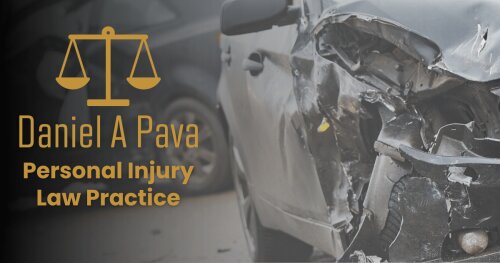Best Assault & Battery Lawyers in Springfield
Share your needs with us, get contacted by law firms.
Free. Takes 2 min.
List of the best lawyers in Springfield, United States
1. About Assault & Battery Law in Springfield, United States
In Springfield, like the rest of Illinois, assault and battery crimes are governed by the Illinois Criminal Code. The terms are defined separately but are often charged together in cases that involve both the act of trying to harm someone and the actual harmful contact. Understanding the distinctions helps you assess potential penalties and available defenses.
“Assault” generally involves attempting to threaten or cause harm, or causing another person to fear imminent physical contact. “Battery” refers to the actual unlawful physical contact with another person. When aggravating factors exist, such as use of a weapon or serious injury, charges can escalate to more serious felonies. Local prosecutors in Springfield apply state law and may consider prior offenses, the victim’s status, and the circumstances of the incident.
Penalties vary based on the specific charge and circumstances. For example, simple assault or battery can result in misdemeanor charges, while aggravated forms can lead to felony charges with potential jail time. Sentencing may also include probation, anger management programs, fines, or restitution. An attorney can help you understand the potential outcomes based on the facts of your case.
2. Why You May Need a Lawyer
Facing Assault or Battery charges in Springfield requires careful legal counsel. A local attorney can tailor defenses to Illinois law and the facts of your case, potentially affecting charges and outcomes.
- A family member charges you with domestic battery during a heated argument in a Springfield home, raising protective order concerns and potential jail time.
- Police allege aggravated battery after a confrontation where a weapon was involved or injuries occurred during a Springfield incident.
- You were arrested for simple assault in a public place, such as a parking lot or street near downtown Springfield, and the case hinges on proving intent and threat.
- Charges allege battery against a healthcare worker or first responder during a tense event in Springfield, triggering enhanced penalties or separate victim-protection rules.
- You face potential felony charges for aggravated battery due to prior offenses, despite a seemingly minor injury, requiring strategic sentencing considerations.
- There is a risk of a protective order or injunction affecting your daily life, employment, or housing in Springfield; a lawyer can help you contest or modify it.
3. Local Laws Overview
In Springfield, the core framework comes from the Illinois Criminal Code. The state classifies Assault, Battery, and Aggravated Battery as distinct offenses with different elements and penalties. You should know how these definitions apply to your case and what defenses may be available.
Key Illinois statutes include the definitions for Assault, Battery, and Aggravated Battery within the Criminal Code. These sections establish when an act constitutes an unlawful attempt or threat of harm, lawful contact that is illegal, and circumstances that elevate the offense to a felony level. A Springfield attorney can interpret these provisions as they apply to your incident.
Illinois law also includes provisions related to Domestic Violence and protective orders. The Illinois Domestic Violence Act allows courts to issue orders to protect victims and may intersect with criminal charges or case management in Springfield courts. A lawyer can explain how protective orders could impact your rights and obligations while the case proceeds.
“The Illinois Domestic Violence Act provides courts with tools to protect victims and address related criminal charges, including simultaneous protective orders.”
For authoritative, jurisdiction-specific information, consult official sources on these topics. The Illinois General Assembly maintains the statutes that define Assault, Battery, and Aggravated Battery, while the Illinois Courts provide guidance on how those laws are applied in Springfield courts. In addition, federal resources offer context on national trends and best practices in handling these offenses.
4. Frequently Asked Questions
What is the difference between assault and battery in Illinois law?
Assault involves threat or attempt to cause physical harm or causing fear of imminent harm. Battery involves actual unlawful physical contact. The two acts can be charged separately or together depending on the evidence.
How do I know if I am charged with assault or battery in Springfield?
Arraignment notices, police reports, and charging documents reveal the specific offense. A Springfield attorney can review these papers and explain the exact charges and possible defenses.
How much could a Springfield assault attorney cost?
Attorney fees vary by experience and case complexity. Expect consultation fees, hourly rates, and potential flat fees for specific services. Ask about payment plans and any available public defender options if eligible.
How long does an assault case take to resolve in Springfield?
Resolution timelines depend on case complexity, court calendars, and plea negotiations. Misdemeanor cases may resolve in weeks to a few months; felonies can take several months to years with trials or appeals possible.
Do I need a lawyer if I am charged with domestic battery in Springfield?
Yes. Domestic battery charges involve protective orders and family law considerations in addition to criminal penalties. An attorney can help you navigate both criminal and domestic law issues.
Can a charge be reduced or dismissed in Springfield assault cases?
Yes. A skilled attorney may negotiate plea bargains, seek suppression of evidence, or challenge the legality of searches and statements. Outcomes depend on the facts, evidence, and prosecutor strategy.
Should I plead guilty or go to trial in an assault case?
That decision depends on evidence strength, potential defenses, and sentencing ranges. A lawyer can explain risks and help you decide whether a plea offers a better outcome than trial.
Do I qualify for a public defender in Springfield, IL?
Qualifying for a public defender depends on income and case type. Your attorney can help determine eligibility and apply for legal aid if needed.
What is the process for obtaining a protective order in Illinois?
A protective order can be requested by the victim through the court system or by the state in certain cases. An attorney can help you respond to or contest a protective order during the proceedings.
Is there a difference between federal and Illinois assault laws?
Yes. Federal charges typically involve federal jurisdiction and specific contexts, such as interstate elements or federal facilities. Illinois laws govern most state and local incidents in Springfield.
What records or expungement options exist after an assault charge?
Expungement or sealing depends on the charge and court decisions. An attorney can assess your eligibility and guide you through the process if allowed by Illinois law.
5. Additional Resources
- U.S. Department of Justice - Office on Violence Against Women - National guidance, resources, and funding related to preventing and responding to violence against women, including assault and domestic violence.
- Illinois General Assembly - Official site with the Illinois Criminal Code sections on Assault, Battery, and Aggravated Battery (720 ILCS 5/12-1 et seq).
- The National Domestic Violence Hotline - 24/7 confidential support, information on protective orders, and referrals for Springfield residents.
- Springfield Police Department - Local policing resources, incident reporting information, and guidance for victims and defendants in Springfield, Illinois.
6. Next Steps
- Identify potential Springfield defense attorneys and schedule initial consultations within 5-7 days of your arrest or notification. Bring all case documents and any police reports.
- Provide your attorney with a detailed incident timeline, witness contacts, and any alibi information within 3-5 days of the first meeting. This helps early case assessment and strategy development.
- Discuss bail, arraignment, and temporary orders with your lawyer within 1-2 days of contact. Your attorney can explain options to minimize initial detention risk and prepare for court appearances.
- Request and review discovery materials, including police reports and witness statements, within 1-3 weeks. Your attorney will identify inconsistencies and potential defenses.
- Develop a case strategy with your attorney, including possible negotiations, pretrial motions, and deadlines. Set realistic milestones for plea discussions or trial preparation over the next 4-8 weeks.
- Decide on a plea or trial plan after receiving the prosecutor’s offers and review with your attorney. Ensure you understand potential consequences and any protective orders that may apply.
- Consider ancillary steps such as domestic violence resources or counseling if relevant, to address underlying issues and demonstrate commitment to change. Plan timelines with your attorney for any required programs or certifications.
Lawzana helps you find the best lawyers and law firms in Springfield through a curated and pre-screened list of qualified legal professionals. Our platform offers rankings and detailed profiles of attorneys and law firms, allowing you to compare based on practice areas, including Assault & Battery, experience, and client feedback.
Each profile includes a description of the firm's areas of practice, client reviews, team members and partners, year of establishment, spoken languages, office locations, contact information, social media presence, and any published articles or resources. Most firms on our platform speak English and are experienced in both local and international legal matters.
Get a quote from top-rated law firms in Springfield, United States — quickly, securely, and without unnecessary hassle.
Disclaimer:
The information provided on this page is for general informational purposes only and does not constitute legal advice. While we strive to ensure the accuracy and relevance of the content, legal information may change over time, and interpretations of the law can vary. You should always consult with a qualified legal professional for advice specific to your situation.
We disclaim all liability for actions taken or not taken based on the content of this page. If you believe any information is incorrect or outdated, please contact us, and we will review and update it where appropriate.










